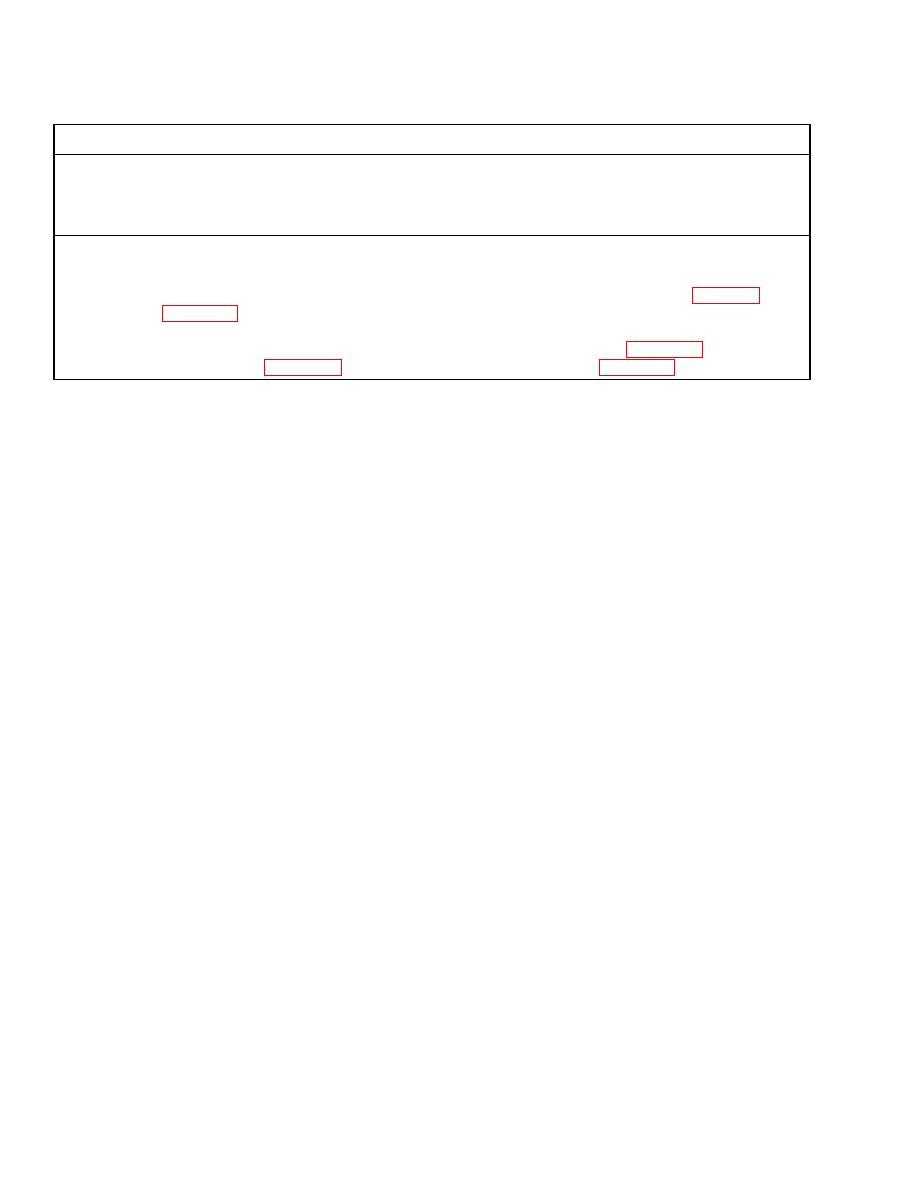 |
|||
|
|
|||
|
Page Title:
MAIN WIRING HARNESS TEST/REPAIR/REPLACE |
|
||
| ||||||||||
|
|
 TM 10-3930-673-20-2
6
This Task Covers:
a. Test
c. Removal
b. Repair
d. Installation
INITIAL SETUP
Equipment Condition
Tools and Special Tools
Negative battery cable disconnected (Para 8-44)
Tool Kit, General Mechanic's: Automotive
(Item 18, Appendix F)
Materials/Parts
Electrical Tape (Item 39, Appendix C)
Test Equipment
Tie Wraps (Item 40, Appendix C)
Multimeter, Digital (Item 9, Appendix F)
a. Test.
NOTE
Failure of an electrical device to function is more likely due to a faulty switch or faulty device rather
than to a broken wire. Do not assume that a broken wire exists until related electrical device and
actuator have been checked.
(1)
Inspect wires for poor connections at terminals, cuts, or other defects.
(2)
Check wire continuity to determine if hidden breaks exist.
(a)
Use electrical schematic to trace path of wire (refer to FO-1).
(b)
If possible, connect multimeter leads to ends of wire.
(c)
Disconnect suspected wire and an adjacent wire. At one end of wires, connect two wire terminals together.
At other end of wires, connect multimeter leads to terminals of these two wires. An infinite resistance
reading indicates a broken wire.
b. Repair.
NOTE
If 30 percent or more of wiring harness wires have been repaired or replaced, replace complete
harness.
(1)
Replace any broken terminal rings or connectors.
(2)
Replace any broken wires.
(a)
Tag and mark both connection points of broken wire. Disconnect broken wire at both ends.
(b)
Cut exposed wire and terminals from both ends of broken wire.
(c)
Cut replacement wire to required length and install proper terminals.
|
|
Privacy Statement - Press Release - Copyright Information. - Contact Us |